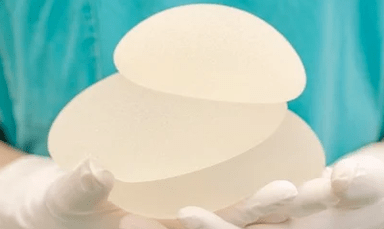
Although breast size may seem predetermined, there are many factors that influence breast size.
Monthly fluctuations in your menstrual cycle aren't the only reason why your breasts may become larger or smaller, become sore, or experience other strange symptoms.
Many changes are related to hormone levels, but breast size can also be affected by coffee intake, weight changes, diet and physical activity.
We can say that your breasts can tell you a lot about your physical condition and health.
What factors actually affect breast size?Let's clear this up.
1. Genetics
While genetics isn't a death sentence, it does play a role in your breast size.
Breast size is a combination of genetic and environmental factors.Some people have a tendency to have large breasts.Additionally, if we gain weight, our breasts will also become larger.
Genes determine the basic parameters of the breast, but not the actual size.
For example, genetic predispositions can affect breast sagging, size, and shape.But breast size can change throughout life.
This doesn't mean just because your mom and sister are a size 3, you are necessarily the same size.However, the likelihood is much higher than for women born into families where first breast size dominates.
2. Training
Generally speaking, you are unlikely to notice any changes in your breasts, even if you engage in strenuous physical activity such as lifting weights.The problem is that the breast glands are on top of the pectoral muscles, not part of them.
Many people believe that you can continuously strengthen the muscles under your breasts without this affecting their shape and size in any way.
While the exercises themselves won't enlarge your breasts, training your pecs can create the illusion of larger, firmer breasts.
Push-ups, bench presses, and flyes are the main exercises for strengthening chest muscles.
- Start with 3 sets of 20 push-ups and finish with the same number of push-ups.Use this complex at least 3 times a week.
- Chest flyes are another useful exercise for the chest.With dumbbells (or a bottle of water) in your hands, sit on a slightly inclined bench with your feet on the floor.Extend your arms to your sides (the arms should be slightly bent) to chest level, then bring them back.Do 3 sets of 15 reps 3 times a week.
3. Intimacy
The pleasure we experience during intimacy can also temporarily increase breast size.
When we are aroused, our heart rate increases, which increases blood flow to various parts of the body, including the chest.This makes the breasts appear fuller and larger, although this effect is short-lived and may range from barely noticeable to more impressive in women.
Regardless, you shouldn't expect too much from just physical intimacy.Once you get back on track, your breasts will also return to their normal size.
4. Phytoestrogen products
.png)
Experts say that some foods can affect the size of women's breasts.
During the transition period, estrogen levels in a girl's body increase, causing breast growth.At the end of the transition period, hormone levels return to normal and the breasts remain almost the same size throughout life.
Since estrogen promotes breast growth, the intake of products containing estrogen analogs can also affect breast size.
Phytoestrogens are plant-derived chemicals that attach to estrogen receptors in cells and act similarly to this hormone.
Phytoestrogens include: tofu, green beans, soybeans, sunflower seeds, and flaxseeds.Carrots and beets also contain phytoestrogens, but moderation is recommended because the side effects of eating large amounts of phytoestrogens-rich foods are not fully understood.
5. Your weight
Breasts are made up of supporting tissue, glands, and ducts, and the proportion of each component varies from woman to woman.
For example, some women have more supporting tissue than fat, or vice versa.If your breasts contain the right amount of fat, you will notice changes in your breast size as you lose or gain weight.
Most likely, if you lose or gain a few kilograms, the difference will be minimal, but if your weight fluctuates more, the difference will become more noticeable.
6. Phases of the menstrual cycle
The menstrual cycle can be roughly divided into two halves: starting from the first day of menstruation, before ovulation - the follicular phase, and after ovulation - the luteal phase.
.png)
During the follicular phase, especially days 5-7 after the start of menstruation, estrogen and progesterone levels are low and breast volume is smallest.Since your breasts are not affected by hormones during this period, this is the most accurate indicator of how your breasts actually look.
As hormone levels rise during ovulation, blood flow to the breasts increases and the breasts become fuller, rounder, and more sensitive.
In a study of more than 200 premenopausal women who underwent mammograms, breast density and size were found to be greater during the luteal phase of the cycle.
If you notice any abnormalities in your breasts, pay attention to changes at different points in your menstrual cycle, as this may simply be due to hormonal fluctuations.If the condition does not go away, consult your doctor.
7. Spider Bites
Not sure why, but for some reason spiders like breasts.Some spider bites may cause an inflamed lump, which may lead a woman to think she has breast cancer.
In fact, this is most likely a reaction to a spider bite, which can be mitigated with antihistamines and anti-inflammatory medications.Regardless, you should consult a doctor if you suspect a spider bite.
Breast cancer doesn't appear overnight, so if you suddenly notice redness, swelling, and inflammation, it could be an insect bite.
8. Lavender oil
A study published in the Journal of Clinical Endocrinology & Metabolism found that lavender oil, often added to soaps, shampoos and laundry detergents, may cause abnormal breast growth.
For example, girls whose breasts developed prematurely before the age of 8 stopped using products containing lavender oil.
Lavender oil and tea tree oil are known to mimic the properties of estrogen and block testosterone.Scientists believe these essential oils have anti-androgenic properties, which explains breast growth.
9. Pregnancy and lactation
.png)
During pregnancy, your breasts also undergo changes to prepare your body for breastfeeding your baby.The blood vessels, ducts, and lobules involved in milk production dilate and grow.This process can lead to greater sensitivity, heaviness, and an increase in breast size.You may also notice that your areola and nipples become enlarged.
Due to hormonal changes, pregnant women's breasts can become slightly larger and even larger during breastfeeding.
Shortly after giving birth, prolactin levels increase in a woman's body, so her breasts begin to produce milk and swell more.Generally, breasts return to their normal size 3-6 months after breastfeeding ends.
The effects may be more pronounced if a woman has had multiple children, and the size and shape of her breasts can vary after multiple births and feedings.
10. Contraception
Birth control not only prevents pregnancy, it also helps regulate your menstrual cycle.In fact, hormonal methods such as birth control pills and IUDs can affect breast size.
When oral contraceptive pills first came out, they contained very high levels of estrogen, which is why women's breasts visibly enlarged.
Modern products contain only one-fifth of the hormones originally present, so the effects are not as dramatic.However, if you notice a slight enlargement of your breasts when you first start hormone therapy, this is completely normal.This is mainly due to the fact that estrogen causes more fluid retention in the body.
11.Your age
Your breasts may look different than they did when you were 16.Most women's breasts lose firmness over time, and this is normal.This is primarily caused by loss of elasticity and stretching of ligaments.
Although breast changes are a normal process, sudden breast enlargement, changes in shape and density should alarm you and be reason to consult your doctor.
12. Good posture
.png)
It may seem obvious, but this is another reason why you need to stop slouching.With good posture, any breast will look firm and toned.
When you have a strong muscular corset, your back is well supported and doesn't bend forward, your shoulders don't close, and your chest looks bigger because it doesn't sink in, but sticks out.
How to correct posture
First of all, you need to always pay attention to how you maintain your body.Slouching is not an easy habit to break, but the more often you think about your posture, the better it will get.
- Your weight should rest primarily on the balls of your feet.
- Your knees are slightly bent and your feet are shoulder-width apart.
- Straighten your shoulders and let your arms hang freely at your sides.
- Tighten your stomach.
- The head should be positioned so that the ears are level with the shoulders.No need to tilt your head forward, backward or sideways.
- If you need to stand for long periods of time, shift your weight from your toes to your heels, or from one foot to the other.
13. Caffeine
Did you know your coffee habit can affect your breasts?Researchers from Lund University and Malmö University in Sweden have found that excessive coffee consumption may lead to smaller breasts.
If you drink no more than one or two cups of coffee a day, this is unlikely to affect your bust size.However, women who drank more than three cups of coffee a day had breasts that were 17 percent smaller on average than women who didn't drink coffee.
Almost half of women have a genetic mutation linking coffee intake to breast size, scientists say.
This may be due to coffee's effects on the female sex hormone estrogen.However, coffee also has its benefits.For example, researchers have found that it can reduce the risk of breast cancer.
14. Breast Implants

If you have breast augmentation surgery, you probably don't wonder whether your breasts will get bigger.However, breast implants may cause some breast tissue to shrink.
This is because implants put pressure on the breast tissue, which can cause it to deteriorate over time.
By the way, if you have breast implants, it is more difficult to notice any changes in your breast tissue, so you should have your breasts checked regularly by your doctor.
15. Menopause
Breasts are hormone-dependent tissue, so it is reasonable to assume that they will become smaller as menopause begins due to declining estrogen levels.However, this is not entirely correct.
On average, women gain half a kilogram per year after menopause.This is due to reduced physical activity and loss of lean muscle mass, as well as hormonal changes that cause more fat to accumulate in the abdomen.
Unfortunately, gaining more than 9kg increases your risk of breast cancer by 18%.
Additionally, Cooper's ligament, a type of connective tissue similar to an internal bra, stretches over time.
Because of this, as you age, your breasts can become softer and begin to sag.


























